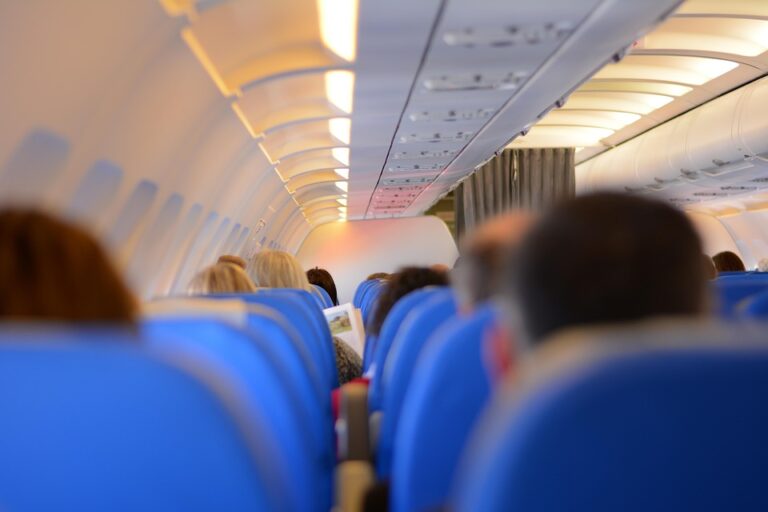Carbon Offsetting Initiatives: How Airlines Are Combatting Climate Change
As concerns over climate change mount, the airline industry is taking significant steps in carbon offsetting initiatives to become more environmentally responsible. This article will explore how airlines are combatting climate change through various strategies, showcasing their commitment to a sustainable future while following the latest trends in airline news.
Understanding Carbon Offsetting
What is Carbon Offsetting?
Carbon offsetting refers to the practice of compensating for carbon dioxide emissions produced by a particular activity by funding programs that reduce or sequester an equivalent amount of CO2 from the atmosphere. This often involves investing in renewable energy projects, reforestation, and energy efficiency initiatives.
Why Is It Important?
The aviation sector is responsible for approximately 2-3% of global CO2 emissions. With projections forecasting an increase in air travel, effectively managing these emissions is vital for the health of our planet. According to a report from the International Air Transport Association (IATA), the industry aims to achieve net-zero carbon emissions by 2050.
Airlines Taking Action
Leading by Example: Major Players in Carbon Offsetting
Several airlines are pioneering carbon offsetting initiatives that not only boost their reputations but also contribute to environmental sustainability. Key players include:
-
Delta Air Lines: Recently announced a commitment to cut its greenhouse gas emissions in half by 2035. Delta intends to invest $1 billion into sustainability initiatives over the next decade, emphasizing biofuels and carbon offset projects.
- United Airlines: United has set a target to be 100% green by 2050, stating earlier this year that they will purchase sustainable aviation fuel (SAF) equivalent to 50% of its fuel demand by 2030. Their CarbonChoice program allows customers to offset their flight emissions easily.
Innovative Programs
Many airlines are also implementing innovative programs to encourage passengers to participate. For instance, British Airways offers its customers the option to pay into carbon offsetting projects during the booking process. This allows travelers to contribute to environmental projects directly linked to their flights.
Analogy for Better Understanding
Think of carbon offsetting as planting a tree to counterbalance the carbon emissions produced by your car. Just as the tree absorbs CO2 over its lifetime, airlines can support projects that absorb or reduce emissions, ultimately contributing to a greener planet.
Current Trends and Data
Statistics on Industry Commitment
-
Projected SAF Production: The global production of sustainable aviation fuel is expected to reach 30 billion liters by 2030, according to a recent report by the IATA.
- Passenger Participation: A recent survey found that 76% of travelers are willing to pay extra for flights that are more environmentally friendly, emphasizing a shift in consumer preferences towards sustainable travel.
Future of Airline Sustainability
Airlines are increasingly aware that sustainability is not just a trend; it’s a necessity. Recent airline news indicates that companies are exploring carbon-neutral growth strategies combining fuel efficiency improvements, innovative technology, and customer engagement.
The Role of Policy and Technology
Government Regulations
Government initiatives play a crucial role in the adoption of carbon offsetting strategies. Countries across the globe are implementing regulations to encourage sustainable aviation practices, often providing financial support for research and innovation in cleaner technologies.
Technological Advances
Investment in research and development is crucial. Innovations such as electric-powered aircraft and the development of greenhouse gas-reducing fuels signify a move towards a more sustainable aviation future. Adaptive advancements in drone technology, for instance, could lead to lesser emissions in small package deliveries.
Conclusion
As the aviation industry faces unprecedented challenges, carbon offsetting initiatives present an opportunity for airlines to mitigate their impact on climate change. While the technology and strategies are evolving, the commitment from airlines like Delta and United shows that progress is being made. Engaging with customers through meaningful carbon offset options not only bolsters the industry’s sustainability efforts but also aligns with consumers’ growing demand for eco-friendly travel options.
Learn More
For further reading, check out these articles on buzzo.live to stay updated on the latest trends in the airline industry:
-
The Rise of Sustainable Aviation Fuel
-
Understanding Airlines’ Carbon Footprint
- Innovations in Green Travel
For more insights into the initiatives shaping tomorrow’s transportation landscape, refer to IATA’s Sustainable Aviation Fuel Report.
Airlines are taking crucial steps to combat climate change, demonstrating that they can indeed turn the tide toward a sustainable future. As we continue to monitor airline news, it becomes clear that the path towards eco-friendly flying is not just a goal but an emerging reality.


